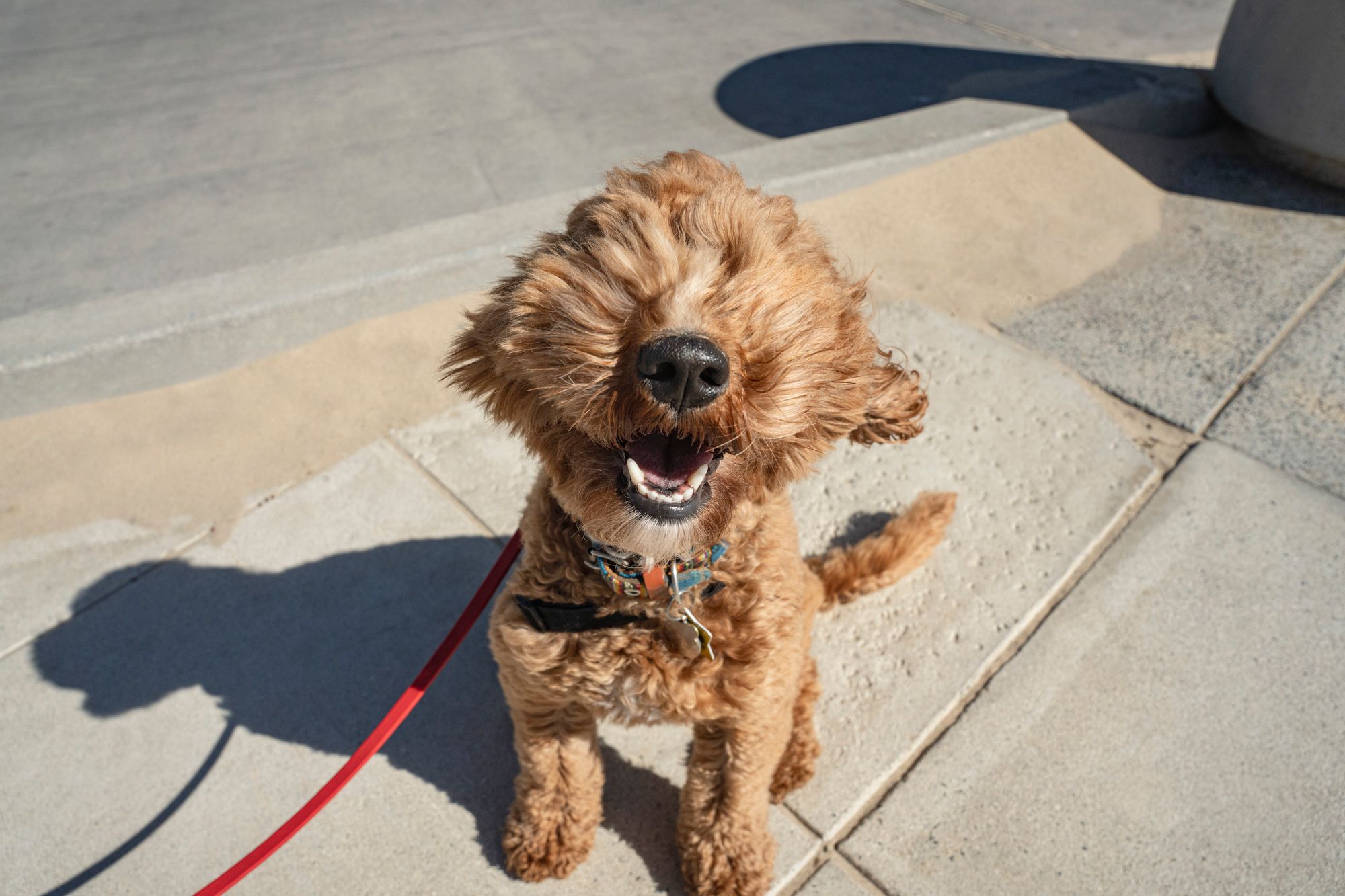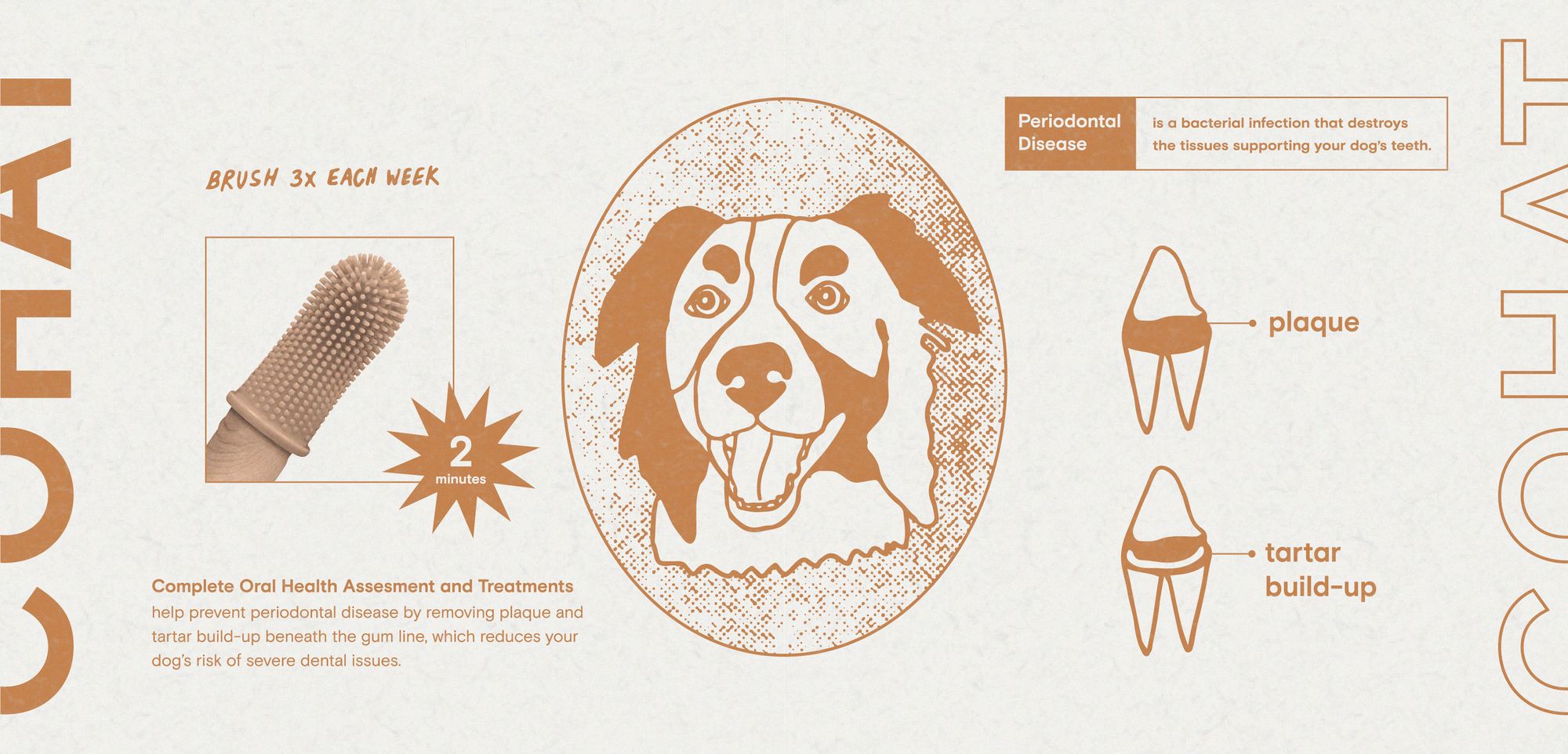Do Pets Need Dental Cleanings? Yes, Says Dr. Aberman.
Dr. Aberman would like to introduce you to your pet’s teeth’s new best friend: The COHAT.

Throughout my veterinary career, a question pet parents have always asked me is “What do I have to do to make sure my pet has healthy teeth?” The answer to this type of question is probably more straight-forward than you might think: brush their teeth regularly (try for 3 times each week) and bring them to see their vet for a regular dental cleaning under anesthesia, also known as a Comprehensive Oral Health Assessment and Treatment (COHAT).
CO-WHAT? COHAT. Your Pet's Teeth’s New Best Friend.
A COHAT is basically a dental cleaning performed under anesthesia and includes an oral examination, x-rays to identify underlying dental health issues, and scaling, polishing, and extractions (if needed).

What Are the Benefits of a COHAT?
Although your pet's teeth may seem to be in good shape, most dental health problems are invisible to the naked eye (under their gum line) and probably require a closer look. Here are six reasons why I recommend regular COHATs to members.
1. They’re the best way to treat and prevent periodontal disease
Periodontal disease is a bacterial infection that destroys the tissues supporting your pet's teeth 🦷. This disease leads to gum inflammation and tooth decay, and in some cases, tooth loss and destruction of underlying bone. COHATs help prevent periodontal disease by removing plaque and tartar build-up beneath the gum line, which reduces their risk of severe dental issues.
2. They help save teeth (and money) in the long run
Dental cleanings under anesthesia may seem costly upfront, but they can help preserve your pet's healthy teeth, which reduces the need for more expensive treatments, such as tooth extractions, down the line.
3. They decrease your pet's dental pain
Bleeding, sore gums are a sign of gum disease. This condition can become painful if left untreated. Dental x-rays and dental cleanings under anesthesia are the only way to fully diagnose and treat the root cause of dental pain.
4. They help improve your pet's appetite
Pets with dental problems may have difficulty eating, which can lead to weight loss and malnutrition. COHATs identify the source of pain, and are an opportunity to remove painful, damaged or abscessed teeth. This can improve their ability to eat, leading to a healthier appetite and weight.
5. They boost your pet’s overall health
We’re just beginning to understand the link between oral health and general health, but the preliminary findings are clear: dental health protects your pet’s overall health! Pets with periodontal disease are more likely to suffer from more serious health problems, including jaw fractures, kidney disease, and heart disease.
6. They improve bad breath
Let's face it: no one likes bad breath! COHATs are the most effective way to remove the build-up of bacteria in your pet’s mouth.
What’s the Deal With Anesthesia-Free Dental Cleanings?
I’d steer clear of anesthesia-free dentistry. Here's why. While they may improve the appearance of your pet’s teeth, they are anxiety-inducing, do very little for their oral health, and do not treat below-the-gumline issues such as fractures or tumors. If your pet has severe dental health issues, they may need surgery or extractions, which cannot be performed during this type of cleaning.
I’m Scared of My Pet Getting Anesthesia. Is It Safe?
Anesthesia is often a fear-inducing word, and not without reason—its one of the most high risk parts of any veterinary procedure. That being said, the risks associated with anesthesia are greatly minimized when administered by a highly-trained and experienced veterinarian or veterinary technician.
Our team uses advanced anesthetic protocols, continuously monitoring vital signs like blood pressure, heart activity, respiration, and oxygen levels. A dedicated nurse tracks these metrics throughout the procedure, ensuring any issues are addressed promptly. Additionally, we use a balanced anesthesia approach, incorporating a continuous rate infusion (CRI) of pain control that allows us to use less gas anesthetic, reducing complications while keeping your pet comfortable.
How Often Does My Pet Really Need a COHAT?
The frequency at which your pet needs a COHAT depends on the individual dog or cat and their oral health. A healthy adult pet may only need a COHAT every 1-2 years, while pets with existing oral health issues may need them more frequently, sometimes as often as every 6 months.
How Much Do COHATs Cost?
The average cost for a canine or feline dental cleaning (without an extraction) at Modern Animal is $1320. However, pricing for surgeries can range, and is dependent on many factors like your pet’s size, health, and age. A healthy 9-month-old Dachshund will likely have a lower invoice than a 7-year-old diabetic Great Dane.
The Bottom Line
In order for your pet's teeth to be both healthy (and pretty), I recommend receiving a Comprehensive Oral Health Assessment and Treatment (COHAT) every 6 to 12 months. COHATs not only improve the appearance and smell of their smile, but they also diagnose and treat serious dental health issues such as cavities, fractures, and tumors. By catching and treating your pet's dental health issues early, you can prevent more costly procedures down the road.
